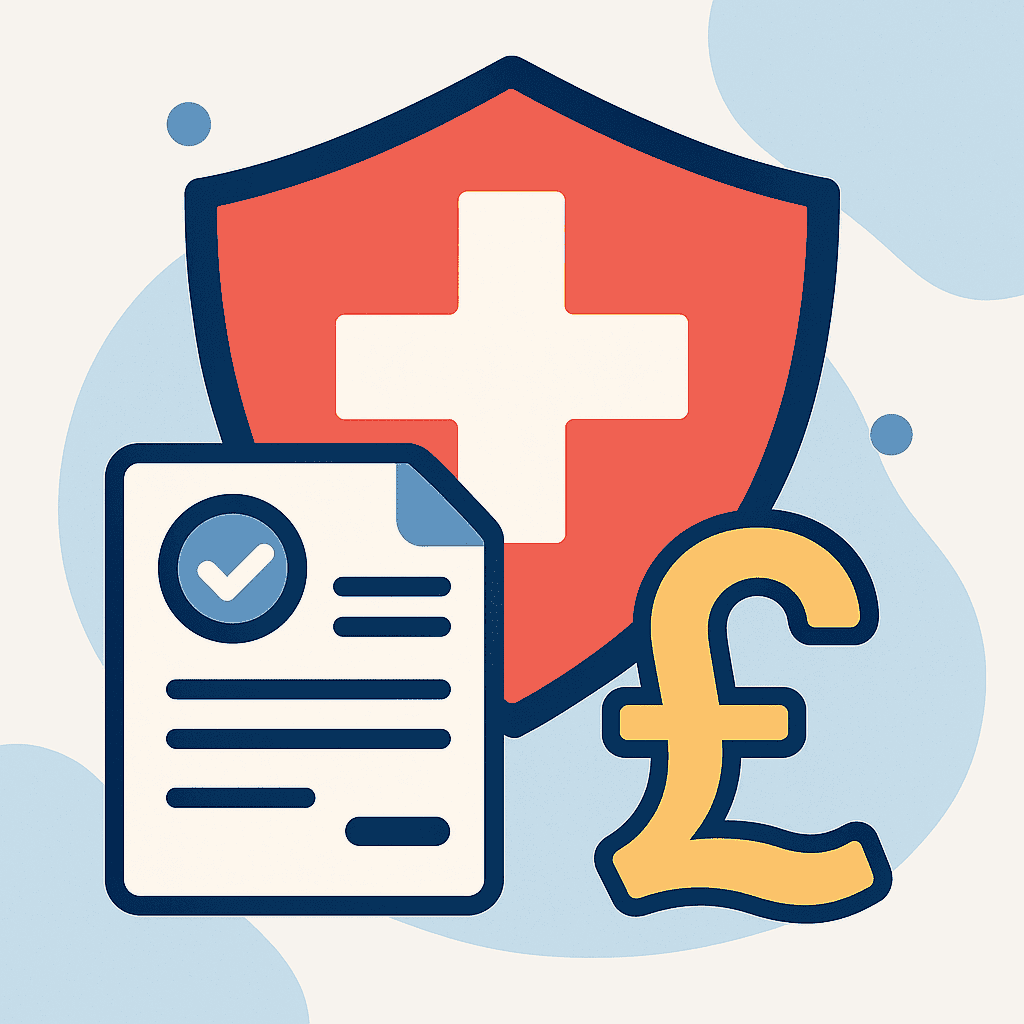Do You Pay Tax on Private Health Insurance from Work?
Learn how HMRC taxes employer-provided private health insurance in the UK. This article explains what counts as a benefit-in-kind, how tax is calculated, and what UK employees need to know to stay compliant and minimise their tax bill on workplace health benefits.

Introduction
Does your workplace offer a private health insurance scheme for its employees? It's indeed a valuable offering that can go a long way in alleviating your concerns about health care. But numerous employees in the UK wonder: do you pay tax on private health insurance from work? The short answer, usually, is yes; but knowing how exactly this tax works can make for a good financial strategy.
This guide delves into everything you ought to know about the tax treatment of employer-provided private health insurance in the UK. We will look at what HMRC considers taxable, how the tax is calculated, and what you can do to remain compliant and informed.
Is Private Health Insurance From Your Employer Taxable?
Yes, private health insurance provided by your employer is most commonly considered a taxable benefit by HMRC. Such a benefit is called a benefit-in-kind (BIK) and refashions money into taxable benefit in the hands of the employee. This means the recipient must pay tax on its cash value-equivalent.
What is a Benefit-in-Kind?
A benefit in kind represents a benefit-in-cash offered to its employee by an organization that has monetary value. These might comprise:
- Company cars
- Private healthcare packages
- Gym memberships
Since these replace cash income, HMRC taxes the benefit accordingly.
How Do You Know If Your Insurance is Taxable?
In any case, the employer-employee must notify HMRC of taxable benefits to the employee by the means of a P11D form concerning the previous tax year. This is usually sent to HMRC by July 6 of the current tax year, while a copy would be sent to you comprising the declared benefits and with their cash equivalents.
How is Tax Calculated on Private Health Insurance?
The tax will depend on the amount of benefits you receive and your personal rate of income tax; let's take another look:
- The cost of your health insurance policy from your employer is £500 yearly.
- Your tax rate is 20% (basic).
- Consequently, you pay £100 in tax each year in addition to other costs (£500 times 20%).
A higher rate taxpayer would pay £200 extra per annum (40% of £500).
Is It Perceived Equally by One and All?
No—it is based on one's individual tax rate and the cost of the policy. Hence, while lawyers and doctors are paying most tax, they are not necessarily paying most on private health insurance.
Motives and Special Cases
The following scenarios might lessen or nullify the tax payable:
Group Policies and Exemptions
- Some group health care policies treating all employees equally might be taxed differently.
- If the benefit provided is being used as part of a wider well-being program (such as health screening or mental health support), some elements may be exempt from tax.
Health Insurance for Work Abroad
Where the client is posted abroad on a temporary basis by the employer, the benefit of private health care may be fully or partially exempt from UK tax, depending on the details.
Always check your situation with the HMRC guidance on taxable benefits.
Reporting Private Health Insurance on Your Tax Return
Usually, your employer will lodge the relevant returns for benefits-in-kind through payroll and P11D submissions. However, it may be a good idea to:
- Check your tax code every year (look for "medical insurance" codes).
- Confirm what's on your P11D, and, if anything looks wrong, notify HMRC without delay.
Steps to Check Your Tax
- Review your P11D every year.
- Cross-reference the detail with your payslips and tax code.
- Contact HMRC directly where an issue arises.
Practical Tips to Minimise Tax Impact
There never will be a method guaranteeing avoiding tax completely; however, you will be able to minimise its effect:
- Salary Sacrifice Schemes: Consider entering a salary sacrifice arrangement as this could help yourself and your employer reduce tax.
- Review Policy Options: Choose a policy with less extras to reduce its cost and hence your taxable benefit.
Seek the advice and services of an accounting professional for a more tailored opinion, or try out our salary calculator to see how benefits-in-kind affect your take-home pay.
Can Your Employer Pay Your Tax?
In some instances, your employer could choose to pay the tax due on your behalf. This is called grossing up, which technically raises the value of your taxable benefit and thus probably increases the amount of tax to be paid overall; but you won't have to find the money in your own pocket.
Look through your employment contract or speak to HR to find out if this applies in your case.
Further Reading
For more official information and worked examples, consult the following:
Conclusion
Private health insurance taxable in the UK will almost always be diagnosed as a taxable benefit for its employees. Nevertheless, those who enjoy the better rates of private health insurance usually say the benefits far outweigh the tax.
Understand exactly how much tax you will pay and make sure your employer reports the benefits correctly, and you are on your way to being able to luxuriate in private healthcare for peace of mind.
Keep yourself updated and check every year to make sure your tax records are accurate. The extra effort to keep track of your taxes will be worth it!